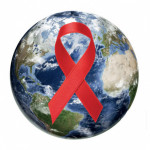Gilead Sciences’ Biktarvy (bictegravir/emtricitabine/tenofovir alafenamide) boasts high rates of viral suppression even after two years of treatment and is also highly effective among those who start the regimen with resistance to the nucleoside/nucleotide reverse transcriptase inhibitor (NRTI) class of ARVs.
Biktarvy was approved in February 2018 and is indicated for those starting their first HIV treatment regimen as well as those switching from a previous antiretroviral (ARV) regimen who have been virally suppressed for at least three months on that regimen. Those switching to Biktarvy should have no history of treatment failure and no known viral mutations that confer resistance to integrase inhbitors. (The bictegravir component of Biktarvy falls into that class of ARVs.)
Researchers presented a trio of studies at the 2019 Conference on Retroviruses and Opportunistic Infections (CROI) in Seattle concerning Biktarvy’s long-term efficacy and its efficacy in the face of drug-resistant HIV.
Studies 1844 and 1878 included people with HIV who were treated with Biktarvy for 96 weeks. Among the 570 people who switched from Triumeq (dolutegravir/abacavir/lamivudine) or a protease inhibitor–based regimen to Biktarvy, 155 (98 percent) were virally suppressed at the 96-week mark. Among the subset of 159 members of this group who started the study with drug-resistant virus, 155 (97 percent) had a fully suppressed virus after 96 weeks, including 42 of 44 (95 percent) who had the M184V/I resistance mutation, which is associated with resistance to the NRTIs lamivudine and emtricitabine, the latter of which is included in Biktarvy.
None of the participants developed resistance to the drugs included in Biktarvy during the study.
Study 4030, also presented at the conference, included 565 people with fully suppressed HIV who were evenly randomized to switch to Biktarvy from a regimen of Tivicay (dolutegravir) plus either Descovy (emtricitabine/tenofovir alafenamide) or Truvada (tenofovir disoproxil fumarate/emtricitabine). The study permitted enrollment to any participants who had virus resistant to NRTIs, non-nucleoside reverse transcriptase inhibitors or protease inhibitors. Those with resistance to integrase inhibitors were excluded.
A total of 138 (24 percent) of the participants had NRTI resistance at the study’s outset.
Of the 562 people who made any of the study’s follow-up visits, 557 (99 percent) had a fully suppressed viral load, as did 220 of 222 (99 percent) of those with any ARV resistance, including 79 of 81 (98 percent) of those with the M184V/I resistance mutation. No participant has developed new drug resistance so far in this ongoing trial.
To read a press release about the studies, click here.







1 Comment
1 Comment